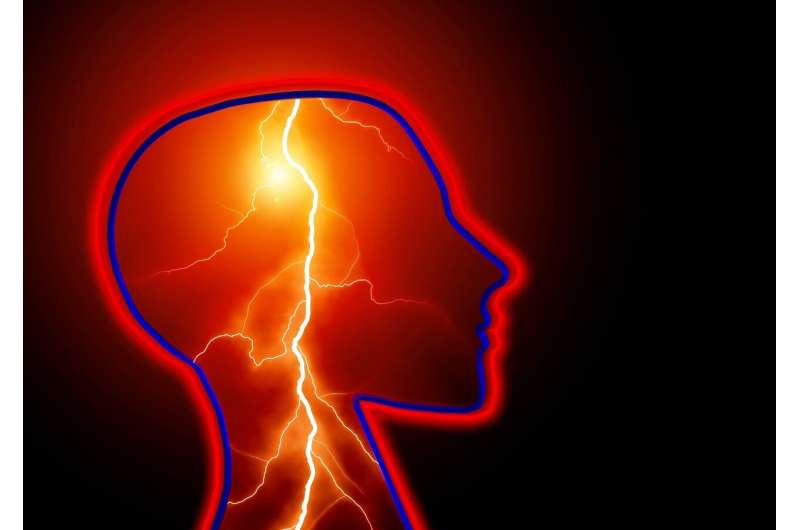
Stroke is one of the leading causes of death and disability in the U.S. And while we often hear about risk factors like high blood pressure, elevated cholesterol levels, and smoking, there’s another that often flies under the radar: stress.
“It’s hard to draw a straight line between a stressful event and a stroke,” says Dr. Curtis Benesch, Medical Director of UR Medicine’s Comprehensive Stroke Center since its start in 1996. “But when you look at large populations, there is a clear, statistically significant association between chronic stress and stroke risk.”
Here’s how something as intangible as stress might affect something as serious as a stroke—and what steps you can take to protect your health.
Can long-term stress raise your risk of stroke?
Yes, chronic stress can increase your risk of stroke, but not in a direct way. Dr. Benesch explains that long-term stress contributes to common stroke risk factors like high blood pressure, poor sleep, unhealthy habits, and systemic inflammation.
Over time, this can lead to atherosclerosis (hardening of the arteries), which raises your risk for an ischemic stroke, the most common type.
“We don’t have a ‘stress meter’ like we have a blood pressure cuff, but what we do know is that high levels of chronic stress correlate with higher rates of stroke and cardiovascular disease,” says Dr. Benesch.
What happens to your body when you’re stressed?
When you’re under stress, your body releases stress hormones like epinephrine (better known as adrenaline) and cortisol. These hormones are helpful in short bursts—they help us react to danger—but when they’re constantly elevated, they can:
- Raise your blood pressure
- Elevate blood sugar levels
- Promote inflammation
- Encourage blood clot formation
All of these factors contribute to vascular damage and, ultimately, higher stroke risk.
Can a scary or traumatic event cause a stroke?
While chronic stress is more strongly linked to ischemic stroke, there is evidence that extreme acute stress—like experiencing violence, a car accident, or a natural disaster—may increase the risk of hemorrhagic stroke (bleeding in the brain).
“We see these extreme acute responses more often in cardiac events, like heart attacks or ‘broken heart syndrome,'” Dr. Benesch says. “In stroke, it’s less common, but if a person has very high blood pressure and a vulnerable blood vessel, severe stress could trigger a hemorrhagic event.”
Are some people more vulnerable to stress-related health risks?
Yes. Research shows that people in lower socioeconomic groups may be more vulnerable to stress-related stroke. Factors like financial instability, unsafe housing, or lack of access to health care can contribute to chronic stress.
“For someone who doesn’t worry about the cost of eggs, that stressor might not register. But for someone on a tight budget, that daily worry adds up,” says Dr. Benesch.
“These are systemic factors that contribute to chronic stress and, in turn, increase health risks.”
How does stress affect your risk for stroke?
Stress can sneak into every part of your life, making it more likely you will trade healthy habits for those that raise your risk of stroke, like:
- Poor diet
- Lack of exercise
- Smoking or drinking more
- Poor sleep
- Skipping medications
- Avoiding doctor visits
These habits create a ripple effect, worsening major stroke risk factors like high blood pressure, diabetes, and elevated cholesterol.
Can managing stress help prevent stroke?
While stress alone isn’t typically listed as a stroke risk factor in clinical guidelines, managing it is essential for overall cardiovascular health.
“But if you’re not sleeping, not eating well, and not taking care of yourself, that stress is clearly affecting your health,” says Dr. Benesch.
He recommends simple strategies:
- Find an activity that brings you joy, like reading, gardening, or spending time with family.
- Try mindfulness techniques if that appeals to you.
- Talk to a doctor or mental health provider if stress feels unmanageable.
How to include stress management in your stroke prevention strategy
Dr. Benesch encourages patients to take stress seriously—but not to let it overwhelm them. “You can’t control everything, but you can take control of small, daily decisions that support your health,” he says.
Whether it’s going for a walk, getting enough sleep, or talking to someone about what’s on your mind, stress management is a vital part of caring for your heart, brain, and body.
What are the warning signs of a stroke? (FAST Guide)
No matter your stress level, it’s critical to recognize the signs of a stroke. Use the acronym FAST:
- Face drooping
- Arm weakness
- Speech difficulty
- Time to call 911
Prompt treatment can significantly improve outcomes, especially for ischemic strokes that benefit from early intervention.
University of Rochester Medical Center
Citation:
Can stress cause a stroke? (2025, May 23)
retrieved 25 May 2025
from https://medicalxpress.com/news/2025-05-stress.html
This document is subject to copyright. Apart from any fair dealing for the purpose of private study or research, no
part may be reproduced without the written permission. The content is provided for information purposes only.

